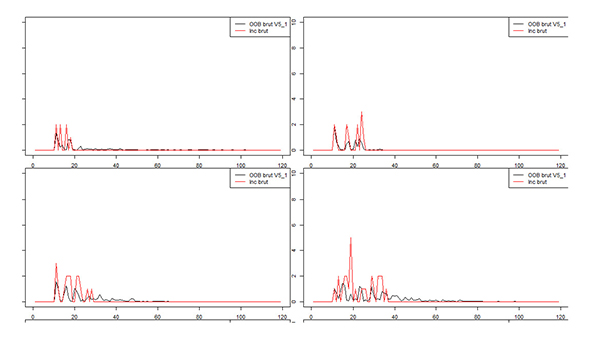 |
||
Home > TERATEC FORUM > Workshops
Tuesday June 22 - Technical workshop
Workshop 02 - 16:00 to 18:00
Communicable diseases and vision disorders
Chaired by Philippe Gesnouin, Tech Transfer Associate for Life Science and Healthcare, Inria and Richard Bosmans, Directeur des Partenariats et Financements Externes de la R&D, Essilor International
Haiti cholera outbreak analysis using Fréchet random forests
By Robin Genuer, Maître de conférences en statistique, Université de Bordeaux
Cholera is an infectious disease transmitted by feco-oral routes trough human-to-human or fomites routes, that leads to a quick dehydration. As most of diarrheal diseases it is link to poor water, sanitation and hygiene conditions, leading to epidemic situations in the less developed regions of the world. From 2010 to 2019, Haïti was struck by one of the largest cholera epidemic since early 20th century. A national strategy based on water, sanitation and hygiene case-area targeted interventions aiming to quickly tackle new outbreaks was launched in 2013.
This work aims to study the impact of these interventions on cholera outbreaks. Commune levels outbreaks were identified from the official count of daily communal cholera cases, and corresponding count of daily interventions. Important covariates such as demographic, geographic, vaccination or hygiene conditions were included. Statistical analysis is based on Fréchet random forests as they allow the use of curves as input and/or output variables.
First phase of the study aimed to estimate the performance of the method and the importance of the input variables using the incidence curve as output. Results with different set of parameters are consistent, and show that variables linked to interventions are important predictors. Confidence in these results is supported by daily precipitations and hygiene conditions, two variables known to be important explaining factors in cholera epidemics, were found to be strong predictors.
Second phase of the study aims to evaluate the potential of using this method as a prediction tool to estimate incidence of new cases after the few first days or to size the response when new cases occur, using a full set of covariates and information about past outbreaks in the same location.
 |
Biography: Robin Genuer is an Assistant Professor of Statistics at the University of Bordeaux and a member of the Inserm U1219 and Inria Bordeaux Sud-Ouest research centres, since 2011. He develops |
|---|
 |
Register now and get your badge here
- TERATEC Forum is strictly reserved for professionals.
- Participation to exhibition, conferences and workshops is free (subject to seats available)
- On line registration is obligatory.